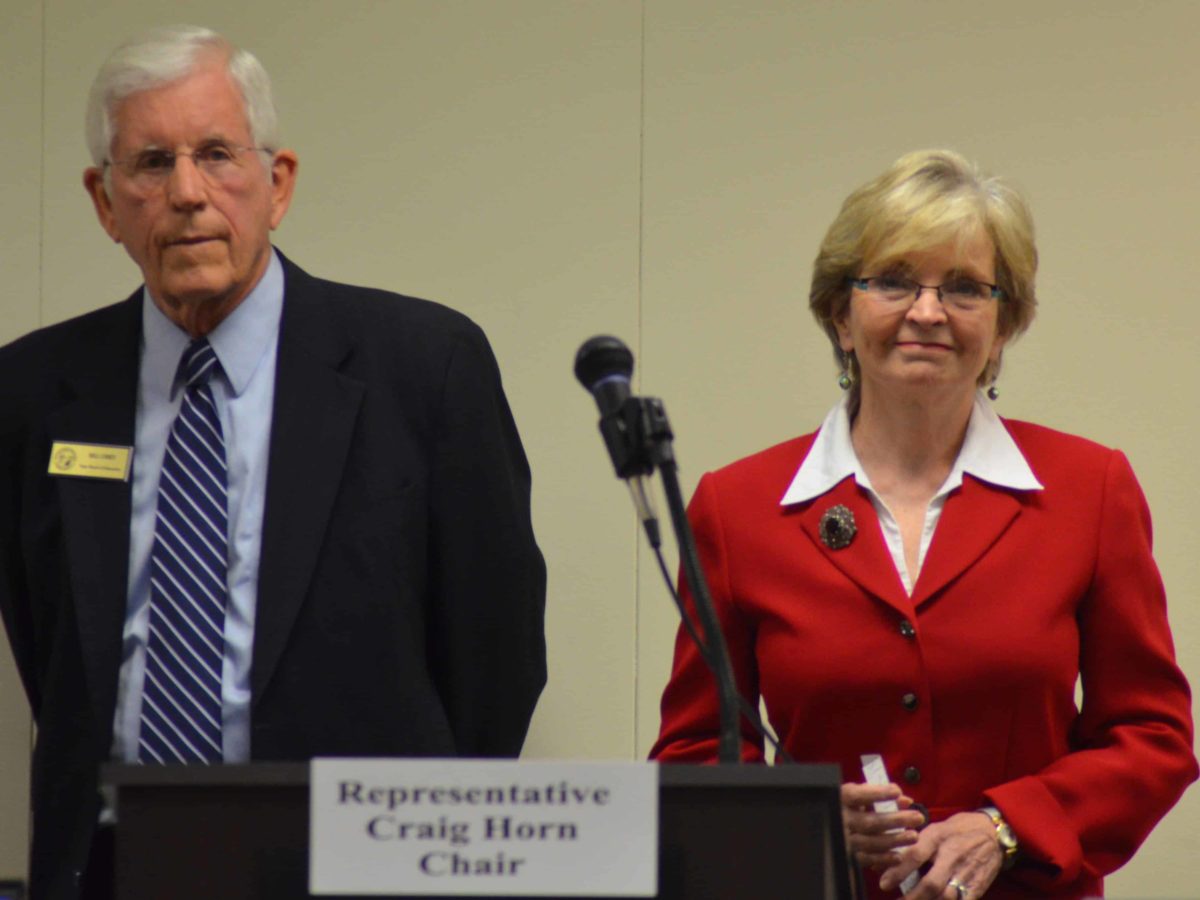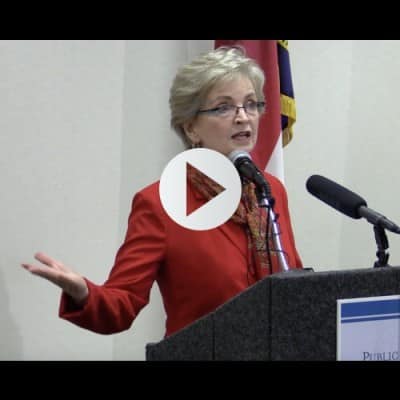
The House Education Appropriations Committee heard concerns and suggestions at today’s meeting from interested education groups, many of which praised the House’s budget while expressing concern about the Senate’s plan.
The House and Senate are working to reconcile their two budget plans, which are far apart on some issues, including funding for teacher assistants and extra teachers to reduce class sizes.
Marge Foreman, research specialist and lobbyist for the North Carolina Association of Educators told the committee that she appreciated the House’s version of the budget, particularly the fact that it kept funding stable for teacher assistants.
The Senate’s plan would reduce funding for TAs by the equivalent of more than 8,500 positions over two years.
She said that being a TA in the modern day is different than it once was. She said they’re required to have at least an associate’s degree or a comparable level of college credit hours, and they work in classrooms where special education students are being mainstreamed with the traditional student population.
“We need to keep the focus on students,” she said. “Students have to have adequate resources.”
She also said she appreciated the House’s salary plans for teachers. It boosts beginning teacher pay to $35,000 and gives other teachers an across-the-board raise of 2 percent. The Senate budget also raises starting teacher pay, and while other teachers would get raises of varying degrees, the increases are stacked towards the beginning of a teacher’s career. Veteran teachers would continue to max out at a salary of $50,000.
“I really just think that we have to make sure that our teachers are adequately compensated,” she said.
Paige Sayles, president of the Board of Directors of the North Carolina School Boards Association, also said she appreciated the House’s commitment to teacher pay and teacher assistants.
She said that in classrooms some students learn quicker than others, and teacher assistants are able to provide the one-one-one time students need to move at their own pace.
“A teacher assistant helps make sure those learning experiences are more personalized,” she said.
And she added that districts who value TAs have to make the tough choice of where else to cut in order to keep them.
“Districts have had to absorb cuts in other areas, because in our eyes teacher assistants are a priority,” she said.
In response to a question from Rep. Bryan Holloway (R-Stokes), Superintendent June Atkinson spoke at the meeting about some of the unintended consequences of the Senate’s plan to reduce class sizes.
“We know that school teachers need time to have classrooms established,” she said, adding that urban areas were likely to have a harder time coming up with new classrooms to fit the new teachers.
Rep. Paul Stam (R-Wake) asked if DPI or anybody at the committee meeting had a handle on what the capital costs would be for districts having to create new classes or schools to facilitate the larger faculty associated with reduced class sizes. Nobody had an answer for him.
Drivers education was a topic on some speaker’s minds at the committee meeting. The House included money in the budget to fund the program for the next year, and after that funding would be covered by income from civil penalties and forfeitures. But the Senate would eliminate state funding. Instead, localities could raise the $65 cap on fees to students, allowing local districts to charge the full price of the program — $300 or more depending on the district. In the second year of the budget, the Senate is requiring the program be taken over by the community college system.
Sayles said the NCSBA does not oppose the plan from either chamber — though it prefers the House plan — but just wants to make sure drivers education does not become an unfunded mandate. In the continuing resolution passed by the legislature, no new funds are given to cover drivers ed programs in the interim and the $65 cap on fees remains. Sayles said that if that became a long-term plan, it would be a problem.
Scott Ralls, president of the NC Community College System, said community college leaders aren’t so keen on the Senate’s plan to move the drivers education program onto their roster of responsibilities.
“To be quite honest, there are some mixed feelings,” he said.
Bill Cobey, Chair of the State Board of Education, thanked the House for keeping funding for the Department of Public Instruction steady. The Senate’s plan would reduce funding for the department by 10 percent. He said the department is already beleaguered by cuts coming from other areas.
“We lose over 130 positions because Race to the Top money is over,” he said. “That is particularly going to impact professional development and our efforts to transform low performing schools and districts.”
He also said he supports House efforts to address what he considers key parts of a successful education strategy in the state.
“We’re particularly excited about innovative legislation in the area of digital learning and teacher leadership, whatever form that takes,” he said.
Brenda Berg, president and CEO of BEST NC, also spoke on those issues, highlighting a package of legislation, which she said form a great foundation for a successful school system.
“If passed, North Carolina will have the most comprehensive strategy in the nation when it comes to providing access to what’s needed most: great teachers, great principals and 21st century schools,” she said.
The package Berg discussed includes the following items which were written into the House Budget:
teacher recruitment and scholarships;
organizational redesign for schools,
transformation of principal preparation; and
a digital learning plan.
Berg said this package makes up less than one-half of one percent of the K-12 budget, but could yield big dividends.
“It could be the single most important thing you do for education in the past decade,” she said.
—
Yesterday, staff handed out the following documents during the House Education Appropriations Committee meeting.
Recommended reading



